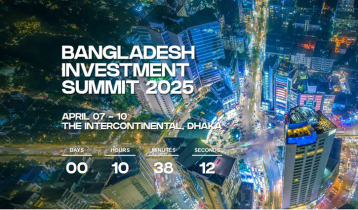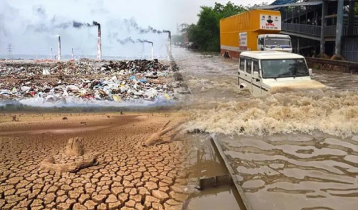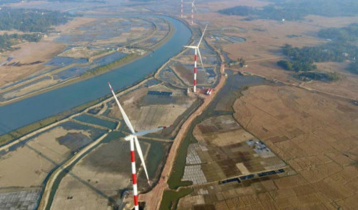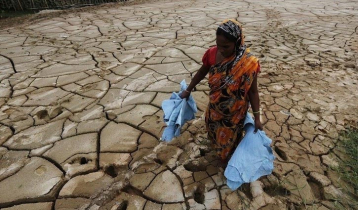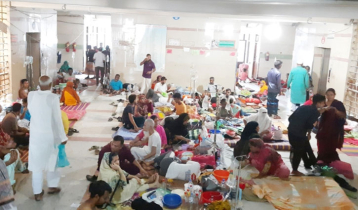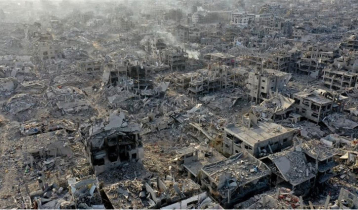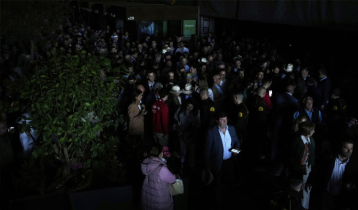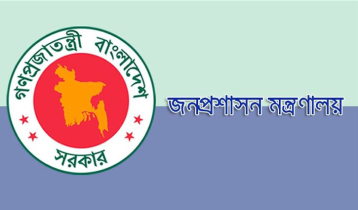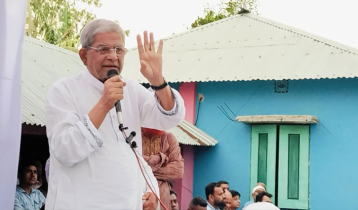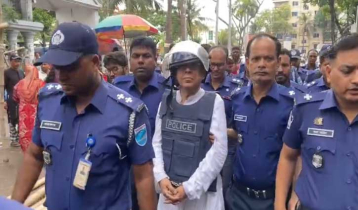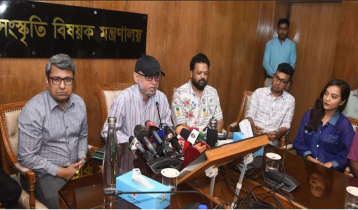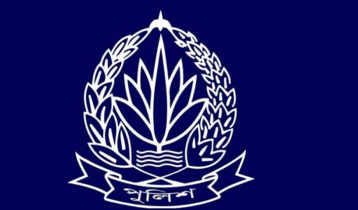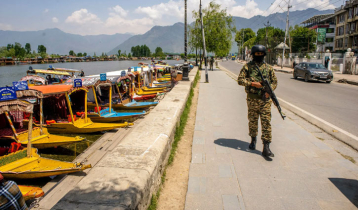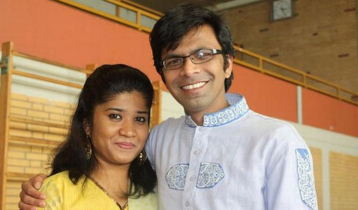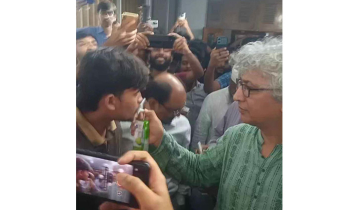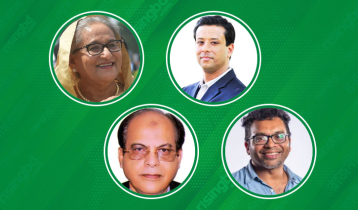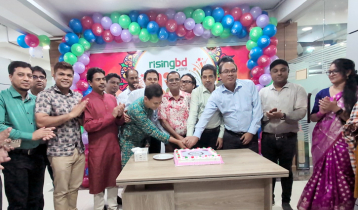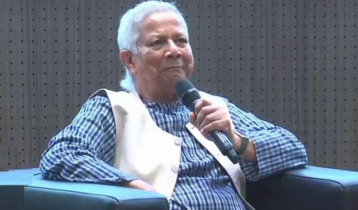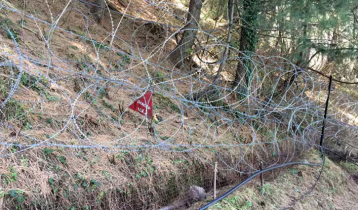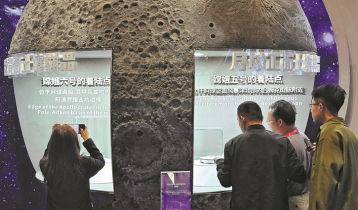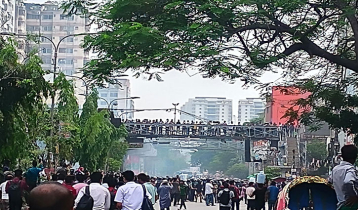Sufferings in the month of Ramadan
Manzurul Alam Mukul || risingbd.com
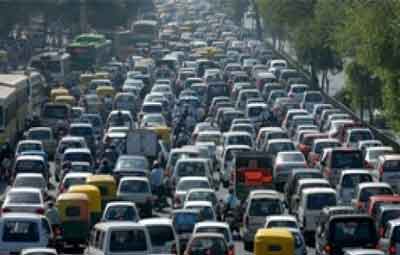
Manzurul Alam Mukul: Ramadan has come again with huge sufferings like the previous years. A fasting day starts through eating Sehari, a meal eaten before the sun rises, and after the sun sets. The fast is broken with a meal known as Iftar. During the period, Muslims abstain from eating, drinking, smoking, and marital relations from sunup until sundown.
Fasting serves many purposes. While they are hungry and thirsty, Muslims are reminded of the sufferings of the poor. Fasting is also an opportunity to practice self-control and purify one’s soul.
But, it is unfortunate that during the month of Ramadan there is a tendency to practice many illegal and immoral practices which are contradictions to principals of Ramadan. According to Quran and Hadith, the abstention is to experience hunger and thirst only, it we don’t establish taqwah (fear of Allah). In fact, this fear of Allah, the taqwah, is the essence of all works as the Quran and Hadith mention that any thing will not reach to Allah without taqwah.
The basic principals of fasting are to avoid the wrong, sinful and immoral practices but it is unfortunate that during the month of Ramadan people are to face many human- made problems like price hike, food adulteration, traffic congestion, etc. But as a Muslim majority nation, where about 90 percent people are Muslims, such attitude is disgraceful for us.
Price hike in Ramadan
The prices of the essential commodities start shooting up unusually during the holy month of Ramadan every year.
Prices of some essentials, specially the Iftar and Sehri menus, can increase sharply as demand of such products increase sharply in the month. But, it is unfortunate that the traders increase prices of essentials two or thrice fold in the month. The high price hike creates a panicky situation among the consumers.
Basically, there is no important reason of price hike and creating a panicky situation on the market as there is a sufficient stock in the country during the month.
Every year, the ministers hold meetings with the business leaders at the Secretariat ahead of the Ramadan. The ministers sincerely request the traders not to raise the commodity prices during Ramadan. Availing this opportunity, the traders push the government to reducing the imposed duties on the imported commodities and to realise other facilities. And they also manage to have some facilities realised. But it is often seen later on that some dishonest traders indiscriminately raise the commodity prices and thus make the market unstable.
Generally, the government tries to keep the market under control by some means. Firstly, it performs the task through the Trading Corporation of Bangladesh (TCB); particularly by selling food items in the open markets meant for the people belonging to the low-income group.
The initiative is so very limited in comparison to the demand that it cannot influence on the commodity market. It is not possible by the TCB to fruitfully interfere into the market by selling some 2-3% of the increased demand of some specific and essential commodities during Ramadan.
Food adulteration
Food adulteration with poisonous chemicals has already reached a dangerous proportion posing serious health hazards in the country. It is a now common matter that the basic food items like rice, fish, fruits, vegetables, and sweetmeats are adulterated with hazardous chemicals in an indiscriminate manner.
The food adulterators find Ramadan as the peak season of making their fortunes by selling adulterated items of food.
There is an allegation that Ifter items including puffed rice, jelapi (sweet), fruits, juice, vermicelli, dates, etc, sold in restaurants and makeshift shops are prepared by mixing various poisonous chemicals to make these more attractive.
Formalin is applied on fish, fruit, meat and milk for preservation; calcium carbide on fruits to ripen; brick dust in chilli powder; urea to whiten rice and puffed rice; sawdust in loose tea; soap in Ghee; and artificial sweetener, coal tar, and textile dyes in sweetmeats.
Poisonous colouring agents like auramine, rhodomine, malachite green, allura red, and Sudan red applied on food items for colouring, brightness, and freshness.
Colouring agents chrome, tartzine, and erythrosine are used in spices, sauces, juices, lentils, and oils.
According to a recent report of Save the Environment Movement, formalin is used in 93.75 per cent of mangoes, and 100 per cent of lichi and berry selling in the capital.
Poisonous residues in food items leave the worst impact on children’s mental and physical growth and women’s fertility, cause cancer, and damage vital human organs like liver, kidney, and heart.
The persons, who adulterated food items with hazardous chemicals in our country, in mostly, claim that they are Muslims. In fact, their immoral and sinful activities are contradictions to principals of Ramadan and Islam. There a question to them, will their fasting reach to Allah?
Traffic Jam
It is regular that the city dwellers witness acute traffic congestion at most of the important points due to some reasons like unauthorised parking, illegal occupation of roads, non-compliance with traffic rules, a lack of traffic rule enforcement, lack of coordination among different agencies, reckless driving and frequent changes of policies and abundance of rickshaws. Beside the above reasons, in the month of Ramadan, the most of the existing footpaths, foot over-bridges and under-passes are occupied by encroachers, beggars and hawkers. As a result, the capital Dhaka is to witness unprecedented congestion, causing untold sufferings to commuters.
Ahead of the Ramadan, the traffic department holds emergency meetings for taking necessary measures to ease traffic congestion. But, there is no reflection of such actions on the real traffic situation.
Normally, in the month of Ramadan, the traffic jam usually increases more than three times than that of the normal hours. This year from the first day of Ramadan the city streets have begun to witness unprecedented congestion. Hanif Flyover and Kuril-Biswa Road Flyover are helping to reduce traffic jam in the capital’s Jatrabari and Biswa road areas respectively, but the busiest roads of Shabagh, Farmgate, New Market, Paltan, Press Club, Motijheel and other parts are creating a dreadful traffic snarl everyday.
Due to construction work of Moghbazar-Mouchak-Malibagh Flyover, some busiest roads of the area have become impassable. As a result avoiding the roads, many vehicles are plying on other roads that are aggravating the traffic gridlock.
On the first day of Ramadan, huge lines of stranded cars and buses were seen on key roads of Shabagh, Farmgate and New Market areas.
Water logging, caused by incessant showers in the rainy season, has decreased space on various roads, and malfunctioning cars added flare to the gridlock.
No progress in official works
At the beginning of Ramadan, a section of staff of different offices, especially the government offices, show them very busy for Ramadan and Eid-ul-Fitr. There is an allegation when people go for official works there they say, ‘Now the month of Ramadan, Come after Eid’. Taking the opportunity, dishonest officials and employees gear up taking bribe in the name of Eid expenditure.
risingbd/July 2, 2014/mukul
risingbd.com

